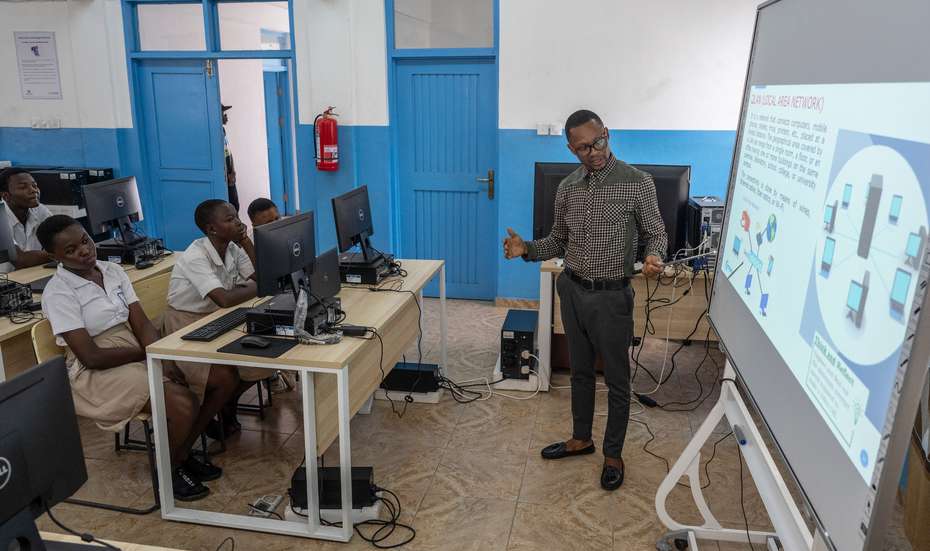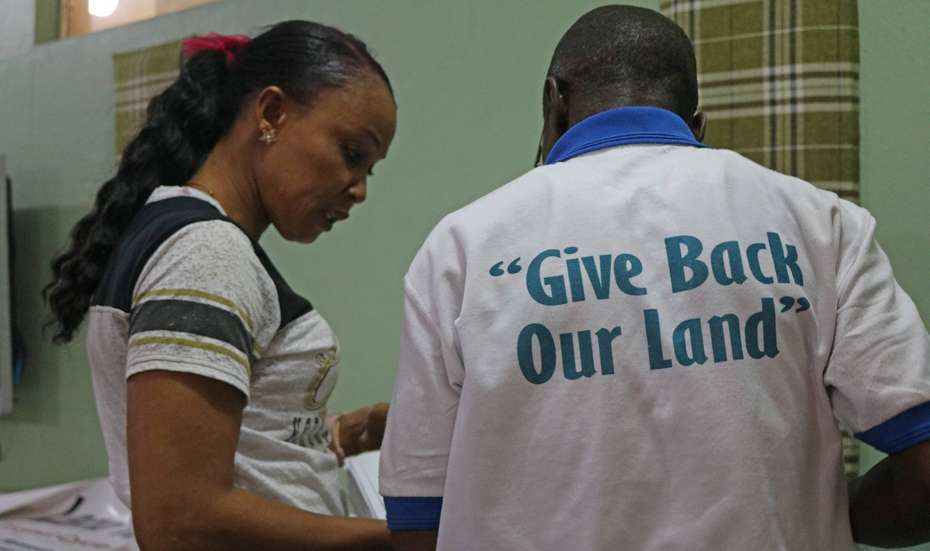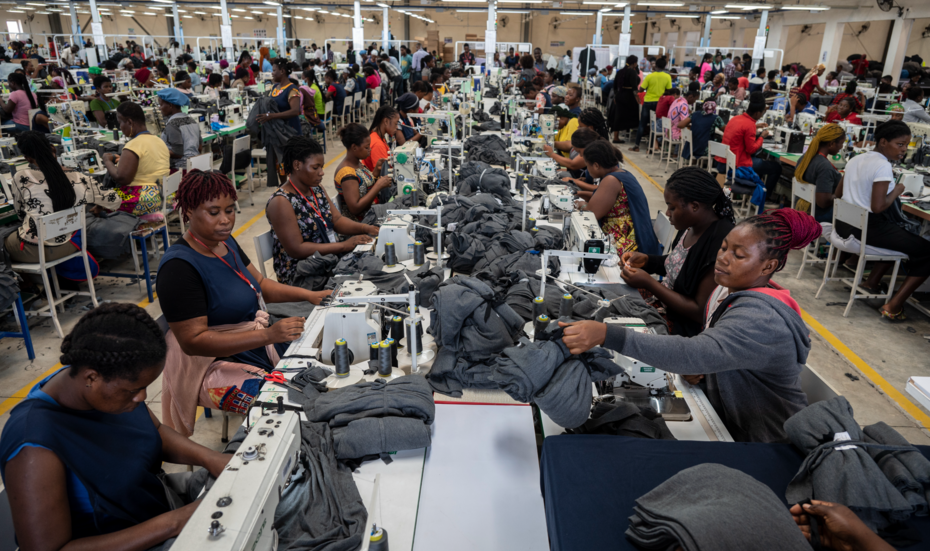The new Africa Strategy – a bit too much and a bit too little
The aim of the Development Ministry is a restart based on partnership. More desirable would have been a policy based on safeguarding national interests, the defence of values and at the same time a recognition of geostrategic challenges.
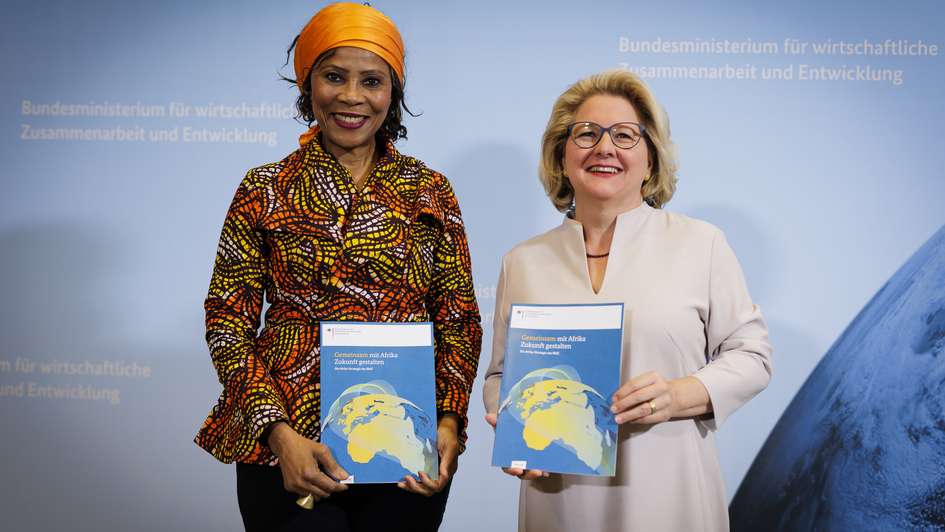
The new Africa Strategy of the Federal Ministry for Economic Cooperation and Development (BMZ) “Shaping the Future with Africa” is a true restart. It is based on a concept of partnership. For the presentation of the Africa policy the minister invited numerous African representatives of important organisations who took part in a debate on stage and talked about the challenges and opportunities on the continent. The public presentation was meant to mark the turning point of a new era in German development policy.
Looking at the content of the new strategy, there is much that is new and at the same time very different to the concepts of the Grand Coalition (the previous coalition government between Conservatives and Social Democrats). The Traffic Light Coalition (the ruling coalition government of Social Democrats, the Green Party and market-liberal Free Democrats) is serious about a new policy for Africa. It puts an emphasis on gender equality and socio-ecological transformation, supported by numerous concrete goals. It has to be emphasised that African suggestions were incorporated in each and every activity. The BMZ-strategy puts special emphasis on cooperation with African states, organisations of civil society and above all with the African Union (AU).
The building blocks of the strategy
Let us look at a few of the central aspects.
There are numerous topics on which one could agree without hesitation: for instance, that women should receive special support in finding employment; or that female entrepreneurs should be given preference. It is obvious that health care should be improved. Similarly, it is a good idea to support the production of vaccines on the continent – as it is to consult with governments on joint measures necessary to combat damage caused by climate change.
African states are especially affected by multiple crises. So, the idea of climate partnerships to reduce climate risks and enable a Just Energy Transformation is convincing, i.e. to protect ecological systems and forests and at the same time use resources responsibly.
The new motto of cooperation is “Win-Win”, for instance in the area of renewable energy. The BMZ wants to produce green hydrogen in African countries and support the construction of a local hydrogen economy. On the one hand, local communities are meant to profit while on the other hand a contribution is made to the national hydrogen strategy of the Federal Government. The BMZ is already cooperating with Morocco, Algeria, Tunisia and South Africa in this field.
Finding a niche for economic cooperation
The central economic issues are discussed in the section on “Employment, Fair Trade, Migration and Digital Transformation”. The African Continental Free Trade Area (AfCFTA) is of great importance for the development of the continent since it will allow a more comprehensive division of labour to develop while the mobility of labour and capital and intra-African trade will increase significantly. In this area, China plays a major role through the building of infrastructure; German policy will have to find its own niche.
The BMZ has been supporting the AfCFTA for some time. It is a much more difficult task to create conditions for fair trade. This was already the aim of the “Marshall Plan” of the previous government and is emphasised here once again. But it remains unclear what exactly is meant and how it is to be finally put into practice after many years of negotiations. One would have hoped for a clearer positioning here not least since African countries have been proposing a new form of trade cooperation with the EU for quite some time.
On the agenda are also the creation of good jobs and support for innovative economic sectors as well as a continuation of the “Special Initiative Good Employment for Socially Just Transformation”. It would surely have been better if the BMZ had included the economics ministry, companies, lobby associations and organisations of civil society much more deeply in the development of its concepts and the planned measures for implementation. Such a comprehensive cooperation could have helped to promote German economic interests on the continent, at the same time integrating them into a “Just Transition” respecting social, environmental and human rights standards. The one-sided focus on development policies precludes this possibility. This is also true for cooperation with the African diaspora that could best play its role as a bridge builder if it were able to contribute to synergies between African and German companies.
The ministry is taking a profoundly new direction in its strategy on migration. Until now, the Germans debates centred on refugees and on combatting the causes of migration. In future the focus is to lie on facilitating legal migration. Advice centres are to be set up in African partner countries. In this way, a contribution is also to be made to implementing the Law for the Immigration of Qualified Personnel. Of course, providing incentives for qualified migrants leads to a brain drain – which the BMZ at the same time wants prevent. There is a contradiction here. Recruiting highly qualified people in itself leads to a loss of competence in Africa. We need qualified staff, Africa also needs qualified staff – what exactly is the strategy of the BMZ?
The description of the role of the controversial Compact with Africa (CwA), which in future is to be given a socio-ecological bent, raises questions. One cannot avoid the feeling that the instruments of AfricaConnect and AfricaGrow will not play much of a role in future. This is regrettable since these were initiatives especially directed at medium and small enterprises that were considering an investment in Africa.
While the former Marshall Plan saw its main goal in mobilising private investment, development minister Svenja Schulze is now promising innovative instruments of finance. Guarantees backed by funds from the federal budget would lower the risk of investing in African companies. Measures for market preparation, market access and market protection as well as local investment are to be maintained. But the reference to the CwA has almost been demoted into a footnote and appears to be a swansong for the innovations of the previous government. To reformulate the CwA in a socio-ecological manner contradicts the neo-liberal foundations of the CwA – it would lead to considerable government intervention in economic activity.
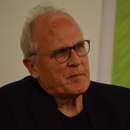
The reference to the CwA has almost been demoted into a footnote and appears to be a swansong for the innovations of the previous government.
Robert KappelSocial security systems are promoted to reduce poverty and hunger. There are robust initiatives that include agriculture, sustainable consumption, supply chains and educational measures. Whether these measures take hold and can be financed is open to question. However, it is clear that crises of employment in Africa can be overcome above all through modernisation in agriculture, development of small and medium enterprises and the informal sector, industrial zones and the integration of African enterprises into global supply chains.
This would also allow a dynamic exchange between rural and urban development. Since agriculture above all has not been supported sufficiently until now, the aim of increasing value added locally should focus on securing the food supply, thus also reducing poverty and hunger.
Challenging power structure
Germany promotes the participation of African states and the AU, which represents the 54 African states, in multilateral organisation. It would, however, be appropriate to act more quickly and more explicit – as the American president has done, since China and many other countries are calling for a reform of the Security Council. A more determined positioning of the entire Federal Government on this matter would send a clear signal to Africa. The aim would also be to give calls for a rules-based global order new impetus.
One issue causes quite a bit of soul searching in the BMZ (and well it might): How can one deal in future with African partner countries which are autocracies or military dictatorships, such as Egypt, Guinea, Ruanda or Tunisia. Decisions have to be taken. Will the Federal Government promote measures to strengthen democracy, the rule of law and respect for human rights, by, for example, cooperation with organisations of civil society, and / or will cooperation be downgraded to mere diplomatic activity? While the paper does not provide any answers here, a re-examination of cooperation with several partner countries is overdue.
Feminist development policy is to become the core of development cooperation. The aim is to address the roots of inequality, the power relations between men and women, social norms and role models. Strong women as a basis for strong societies: 94 percent of all funds are to be directed towards gender equality – compared to 64 percent until now. The precision of these figures is surprising. But beyond statistical considerations the question is: What can such a policy look like? It implies interference in the social conventions of every country – based on our norms and values.
Unquestionably women play a major role in economic life, in trade, in agriculture, in families, industry and administration. As is the case everywhere in the world they are underprivileged in African countries as well. But is it the task of German stakeholders to promote gender equality in African countries? Or is it a form of cultural interference based on our Western values and norms? After all, it is a central finding of development theory that development can only be successful if it is home grown, if people formulate their own policies and decide which road to follow. Nowadays, external intervention – however well intended – is regarded as problematic by all African countries.
Many other issues mentioned – such as basic health care, increased initiatives to strengthen human rights (not only for women, as the document suggests), justice, public administration and civil society – point to the emphasis on development policy in the new Africa strategy. This is also true for the fight against illegal transfers out of Africa and the focus on activities to reduce structural causes of conflict.
All in all we are looking at a bouquet of “May a thousand flowers bloom” and a large variety of measures. The question is, of course, how what appear to be a thousand goals are to be met. The answer of the BMZ: by means of the GIZ (Deutsche Gesellschaft für Internationale Zusammenarbeit – German Agency for International Cooperation), the KfW bank (Kreditanstalt für Wiederaufbau) as well as numerous African and German NGOs.
Recognising the major transformation of the continent and finding a new focus
After reading the document I ask myself: How does Germany want to position itself on the continent in the future? And what are the central questions that are equally important to German society? While China, for instance, is training more than 70’000 African students the document contains no reference to the importance education for Africans in Germany.
Why should it not be possible to finance the presence of an additional 20’000 students from Africa in German universities? Young people are the future, they create networks and deepen relationships in economic and cultural cooperation and research – areas which will become increasingly important in future. And why does the policy not contain any reference to technical cooperation? Cooperation between scientists and enterprises to find new solutions for central problems questions – in the fight against poverty, for instance, in access to electricity, in technological innovation or new systems of transport.
Also missing is support for joint ventures between German and African companies to increase added value locally. This would increase the income of the population and allow markets to grow. It would also be in the interest of German companies who are looking at activities in growing markets in urban centres. It would have been worthwhile to look ahead and acknowledge that 70 percent of the population will be living in cities in future. That is the major transformation on the continent. This document hardly considers it.
Good Samaritans
While other countries such as the US and China formulate their long-term strategies and their own interests, the BMZ is pursuing a non-paternalistic policy which is based on the fundamental idea that African societies need support from outside – and that Germany possesses the necessary competence. This is a valid approach, but in the end, it will leave Germany in the role of the Good Samaritan. It has been evident for some time that African leaders, experts and media do not find this approach particularly attractive. They want to cooperate but no longer want to be recipients of money, of expertise and good advice from foreign countries. Europe and the West are increasingly met with rejection.
Interest based goals are at the core of foreign, security and development policy. For a democratic state, basic values are of equal importance. The promotion of peace, security, freedom, democracy, the rule of law and human development are central goals of German foreign and security policy – ignoring the fact that a values-based policy can lead to conflicting goals. Just think about dealing with states such as Tunisia, Ruanda, Ethiopia or Egypt.
Defining a goal for German policy in Africa has to satisfy several levels of policy: it should be both value- and interest-driven, take into account overarching considerations of foreign and security policy and must be aware of the continuing shift of power on the African continent against the West and towards the Global South. This means that Germany should increase cooperation on global policy with reliable and democratic African countries.
Maybe it was not planned of the minister to counter the advances of China, Russia, Turkey or India with a fundamentally new concept. In the light of the geostrategic fragmentation of the world one would have hoped for a policy based on national interest while standing in for basic values and still acknowledging geostrategic challenges. As Chancellor Olaf Scholz said at the end of November 2022 when presenting the German Africa Award: “The world of the 21st century will not be a world with only a single or a pair of centres of power.” Instead, he envisioned a multipolar order “with a global centre of gravity in Africa”. But he also added: “Others, too, have recognised the increasing importance of Africa – and are responding in their own manner.”
It would have been beneficial to the new strategic Africa policy had it looked at the larger picture and offered orientation in a fragmented world. The thousand flowers approach does not even come close.

